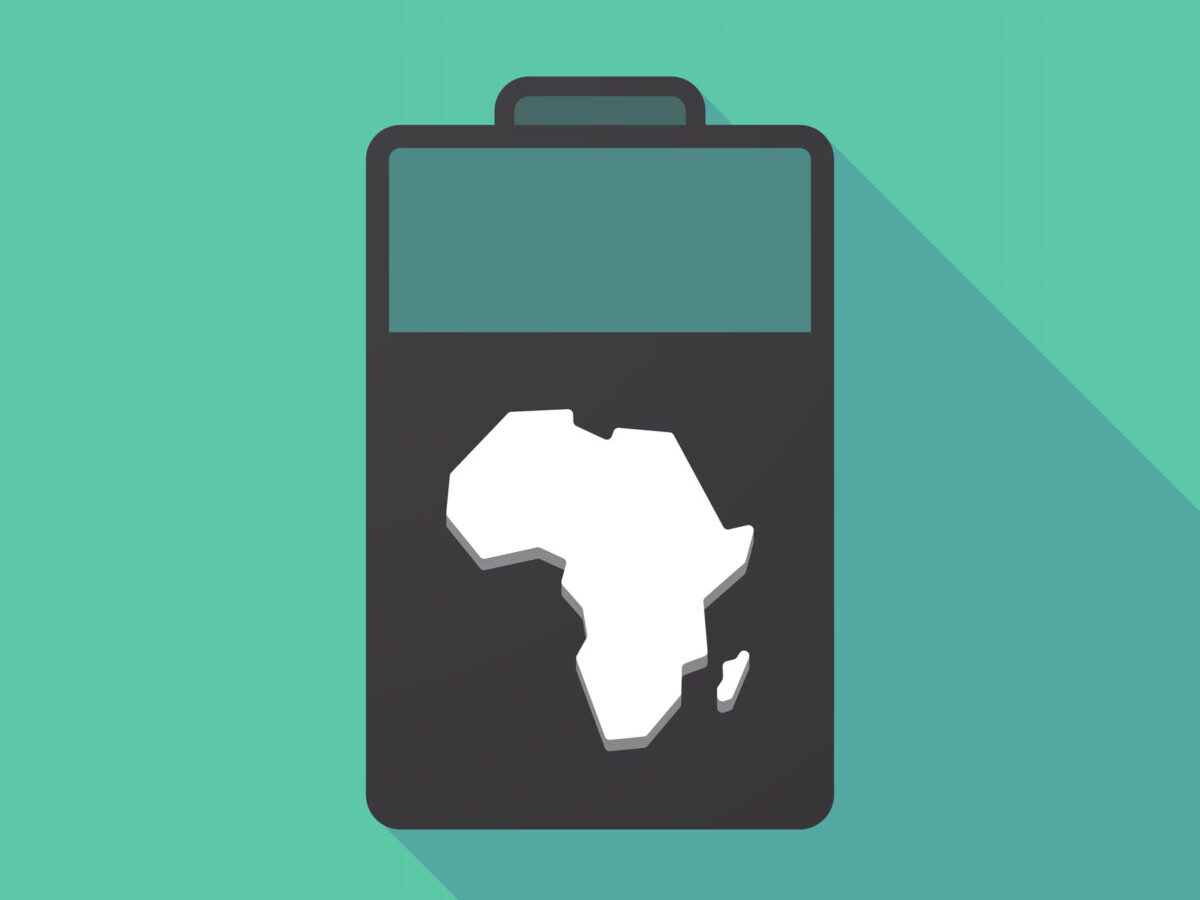No Country for Aussie Men? Leo Lithium boss says ASX African lithium plays can still succeed

Pic: Getty Images
- After months in a trading halt, Leo Lithium will bank US$342.7m from Chinese lithium giant Ganfeng for the last 40% it still holds of the Goulamina lithium mine
- Along with the deal, Leo has reached an MoU with the Mali Government to pay a US$60m settlement
- Leo boss Simon Hay says the company’s interests have been closely aligned with JV partner Ganfeng
It was touted as Africa’s answer to Kathleen Valley, and when spodumene prices were at their apex in early 2023, Leo Lithium (ASX:LLL) could seriously claim being ‘undervalued’ compared to Aussie developer peer Liontown Resources (ASX:LTR) as a bid from Albemarle pushed the latter’s value beyond $6 billion.
The ‘African discount’ — as well as the fact Leo never owned more than 50% of the proposed 500,000tpa Goulamina asset in Mali after its demerger from the ill-fated gold miner Firefinch (ASX:FFX) — was among the rationale for Leo never pushing beyond a fifth of the Tim Goyder-chaired Liontown’s value despite the similar scope of their developments.
And jurisdictional risk concerns proved to be well-founded.
While Leo and its JV partner Ganfeng Lithium — China’s largest lithium miner and processor — have been able to build the Goulamina mine through the turmoil, successive military coups in 2020 and 2021 in Mali that dismantled democratic rule had shifted the goalposts.
A new Mining Code was proposed in 2023 that could see the State and local businesses claim up to 35% of any new mining project in the West African country.
And Leo has been in a trading halt for months, navigating a dispute that has now been resolved with a US$60m settlement due to be paid by the company to the Malian Government.
The solution has been reached with Leo selling the remaining 40% of Goulamina it still held to Ganfeng for US$342.7m ($521m AUD). Leo previously shopped 5% to Ganfeng for US$65m and had US$68.5m of its capex at Goulamina covered by Ganfeng for another 5%.
The selldown will complete over the next six months once Malian and Chinese foreign investment approvals are cleared, with Leo shareholders to bag an initial US$10m before the first major tranche of US$161m is paid on the satisfaction of key conditions and a further US$171.2m at some time before June 30 next year.
Offtake rights linked to a downstream development previously expected to be jointly owned by Leo and Ganfeng will also be converted into a 1.5% royalty on revenue from Goulamina stage one over a 20 year period from the first shipment.
Best outcome
The sale to Ganfeng will no doubt alight fears China is grabbing even greater control of the world’s lithium resources to feed a local EV industry now making up 60% of the global market.
It has sparked concerns the country’s government and dominant players could wield extraordinary control over prices, as it does in the case of other critical metals like rare earths.
That has played out on the African continent, where low grade lepidolite exported to China was one of the sources which led to the oversupply that crunched prices in late 2023.
Meanwhile, a dispute has raged over control of Africa’s largest spodumene deposit — the Manono project in the DRC — since 2022, with ASX-listed owner AVZ Minerals (ASX:AVZ) suspended from trade and locked in legal disputes with local companies and Chinese giant Zijin since.
Prospect Resources (ASX:PSC) on the other hand banked a major payday selling its Arcadia project in Zimbabwe to a Chinese miner for US$387m, the path eventually taken by Leo.
Despite the potential optics, Leo boss Simon Hay told Stockhead the company had been strongly supported by Ganfeng during its suspension, saying it shouldn’t be a concern to have Ganfeng take full control of the major lithium mine.
“I don’t think so at all, and I definitely have to put in a very good word here for Ganfeng, they have been a fantastic partner for us throughout this whole process,” Hay said.
“We’ve been very aligned in our dealings with the Government from day one right up until this point in time.
“I can’t speak for them on how they view the government, but we’ve been aligned in our approach.
“They’ve been very supportive of Leo, they’re the ones who’ve invested US$307 million into the country so far, Leo hasn’t invested money, we’ve sold down our ownership of the project and that money has gone into the country.
“We think they’ve paid a reasonable price under the circumstances for our share here.”
Ganfeng, notably, already have investments in Australia’s lithium sector, including a 50% ownership stake in Mineral Resources’ (ASX:MIN) Mt Marion mine.
They were recently revealed as the successful party in a process to find a downstream processing partner for Pilbara Minerals (ASX:PLS), agreeing to sell down their stake to satisfy US and European investment criteria if need be.
Payout on the way?
With months to go before the deal’s conditions are satisfied, it remains to be seen what Leo will do with the cash.
A dividend, similar to the one Prospect paid on the Arcadia sale, is certainly on the cards.
Hay, previously the boss of Galaxy Resources ahead of its merger with Orocobre to create Allkem (more recently merged with Livent to form Arcadium Lithium (ASX:LTM)), remains positive about the potential of the Leo management team to pick up another project.
Mali is likely out of the question, but he still thinks ASX listed companies can make a go of it in Africa.
News of the sale saw LLL neighbour First Lithium (ASX:FL1), which owns the Blakala prospect, run up 6.8% yesterday.
Shares in Atlantic Lithium (ASX:A11), owner of the Ewoyaa project in Ghana, were also 3.8% higher.
“It’s jurisdiction by jurisdiction, I think. There’s certainly other Australian or Western lithium developers in the region,” Hay said.
Hay said a capital distribution would be “one of the first things” on Leo’s agenda, but said it would take discussions with big investors to decide it’s path ahead.
“I haven’t spoken to all our major shareholders, so it is presumptuous to talk about what we do with the money,” Hay said.
“That being said, we’ve got a team here that’s developed a lithium asset.
“We’ve got a fair bit of lithium expertise in the company and we’ve got an ambitious board and management team, so we would like to do something but it’s too early to hone (in on) any targets.”
Lithium market turnaround
Another challenge facing African lithium developers was a crunch in lithium prices, which saw spodumene concentrate fall from levels above US$8000/t last January to just US$850/t early this year.
They have since rebounded beyond US$1200/t, amid hopes the bear leg of the cycle was short-lived and as high cost supply from China and Australia was curbed.
“Even with slowing in growth of EV sales in certain markets, the whole industry is still growing,” Hay said.
“So I think that’s really positive. If I look at chemicals and the pricing over the last five-six years, one good thing about this trough that we’ve just passed through is that the trough was around about US$1,000/t.
“Previous troughs have been US$400/t. So I think the market overall has moved up and the end market has realised that incentive pricing for new lithium projects is no longer US$400-500/t, it needs to be US$1000 and more.
“I think that’s the maturing of the industry.
“For us, we’re selling the project now. Of course it’s a long live project, there will be future value in it. We did try and retain some of that exposure to the future pricing through this royalty that we’ve got as well.”
The fine print
Links to Firefinch, Leo’s 17.6% owner and the company from which LLL spunout, have also dogged the lithium play.
Among the issues raised by the Malian Government, along with Leo’s plans to ship an unprocessed DSO product and concerns over the process to deliver Mali’s 10% free carried stake, was Leo having to prove there was no corporate relationship between the companies.
Later correspondence from the Mali Government claimed the transfer of the Goulamina permit to the local holding company did not follow the relevant regulatory procedures.
Mali also wanted Leo and Ganfeng to apply for a new exploration permit and migrate the project to the new 2023 Mining Code.
Leo disputed these claims and continued construction of the project, also saying it should have been exempt from taxes and levies issued under its exploitation permit.
The settlement has dragged in the current managers of Firefinch and will include a US$60m payment by Leo, with AUD$11.5m contributed by FFX to Leo as part of the deal.
Firefinch’s shares in its Morila mine will also be transferred to Mali’s State owned mining company.
In exchange the project’s title has been assured and dispute over the ‘irregularity’ of the transfer settled, permits will be granted for the project and the proponents will be exempt from customs and duties during the remaining construction phase.
First concentrate is expected in the September quarter.
Leo Lithium (ASX:LLL) share price today
At Stockhead, we tell it like it is. While First Lithium was a Stockhead advertiser at the time of writing, it did not sponsor this article.
Related Topics

UNLOCK INSIGHTS
Discover the untold stories of emerging ASX stocks.
Daily news and expert analysis, it's free to subscribe.
By proceeding, you confirm you understand that we handle personal information in accordance with our Privacy Policy.








